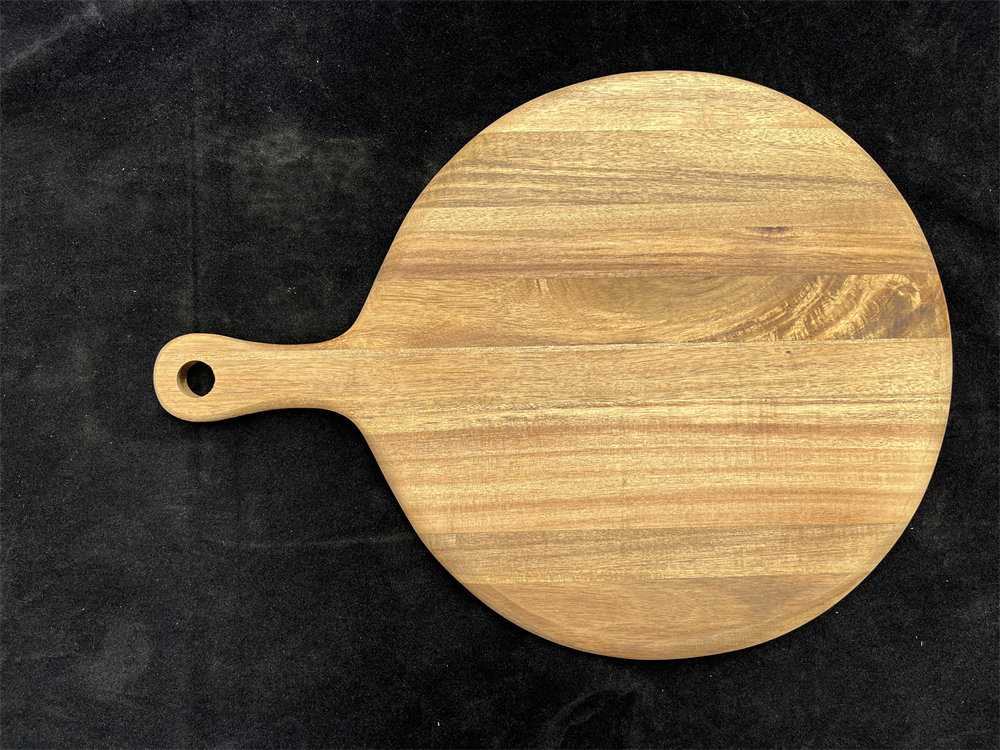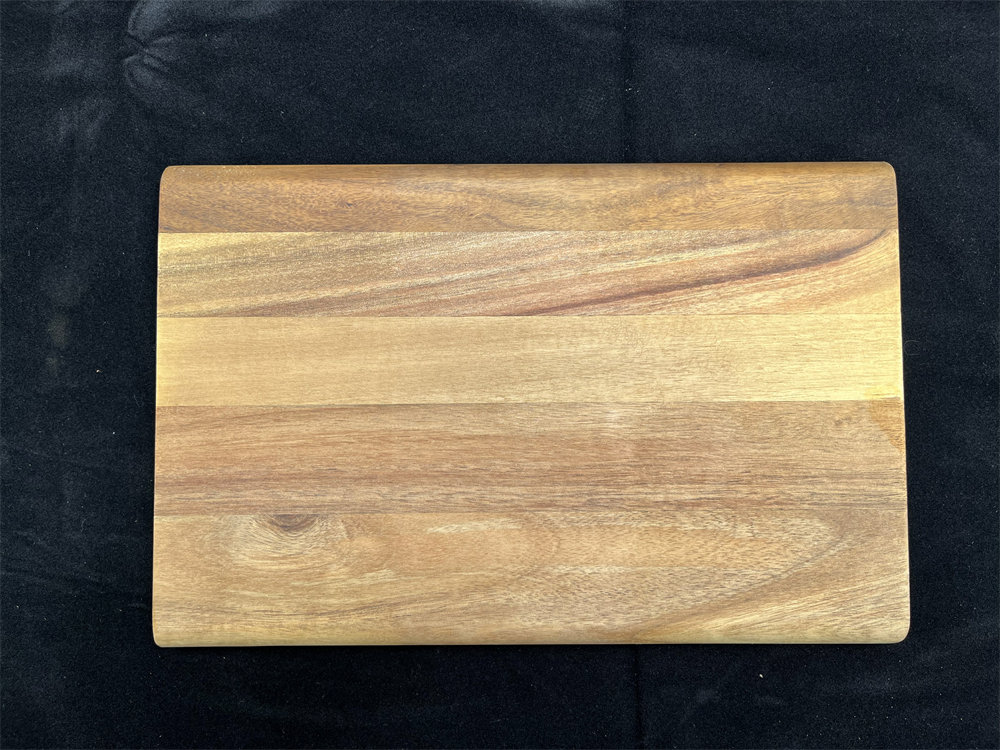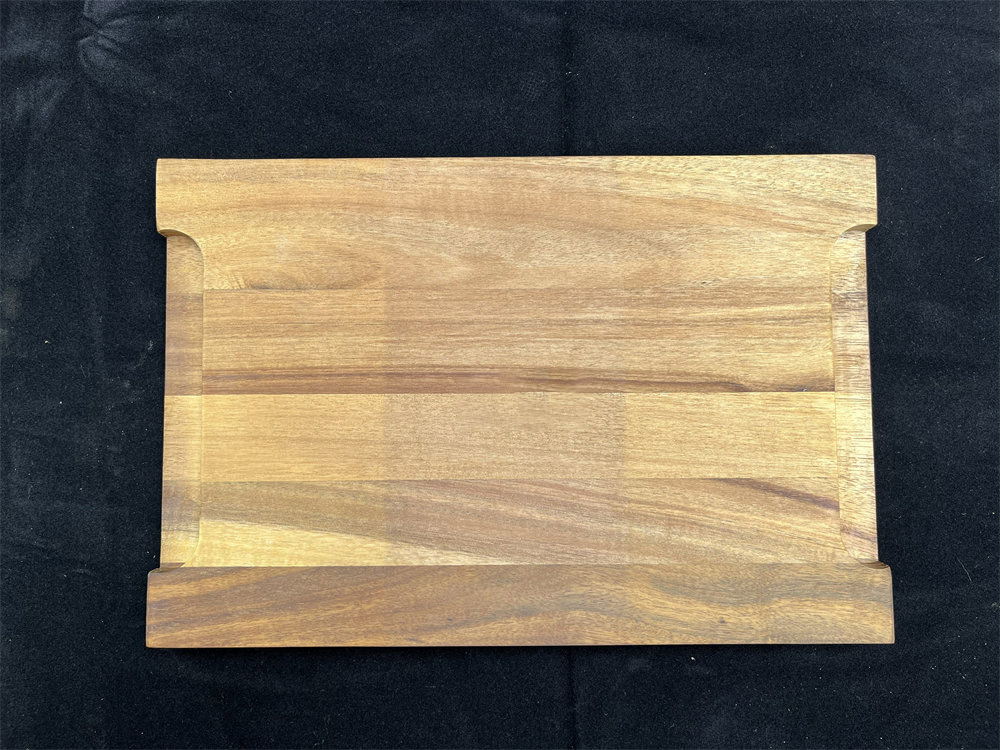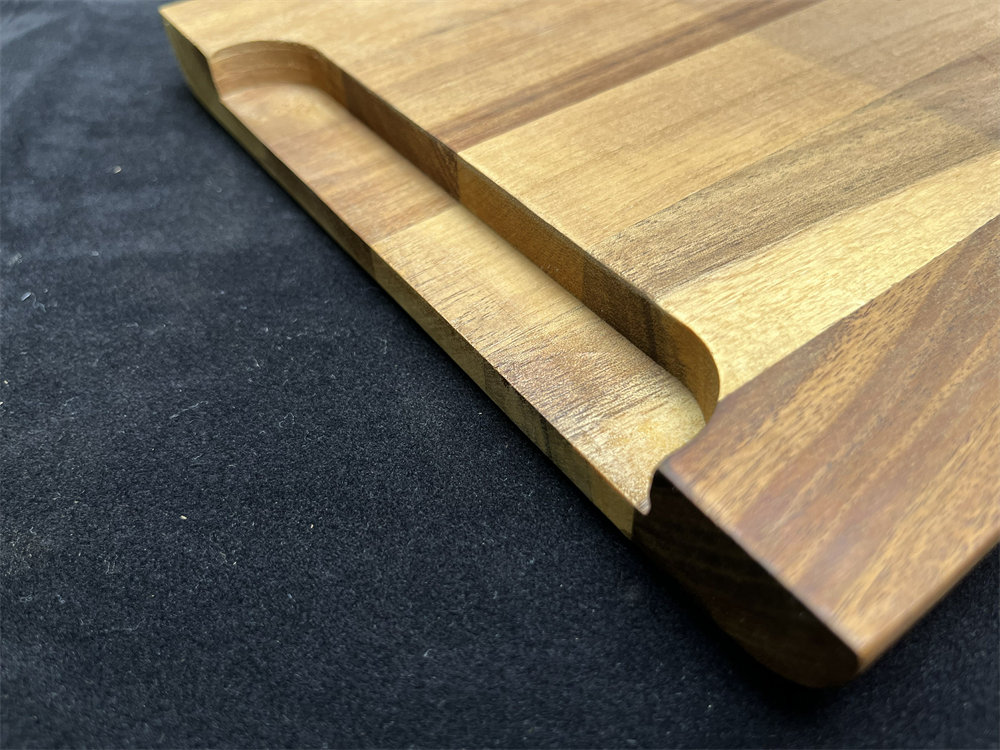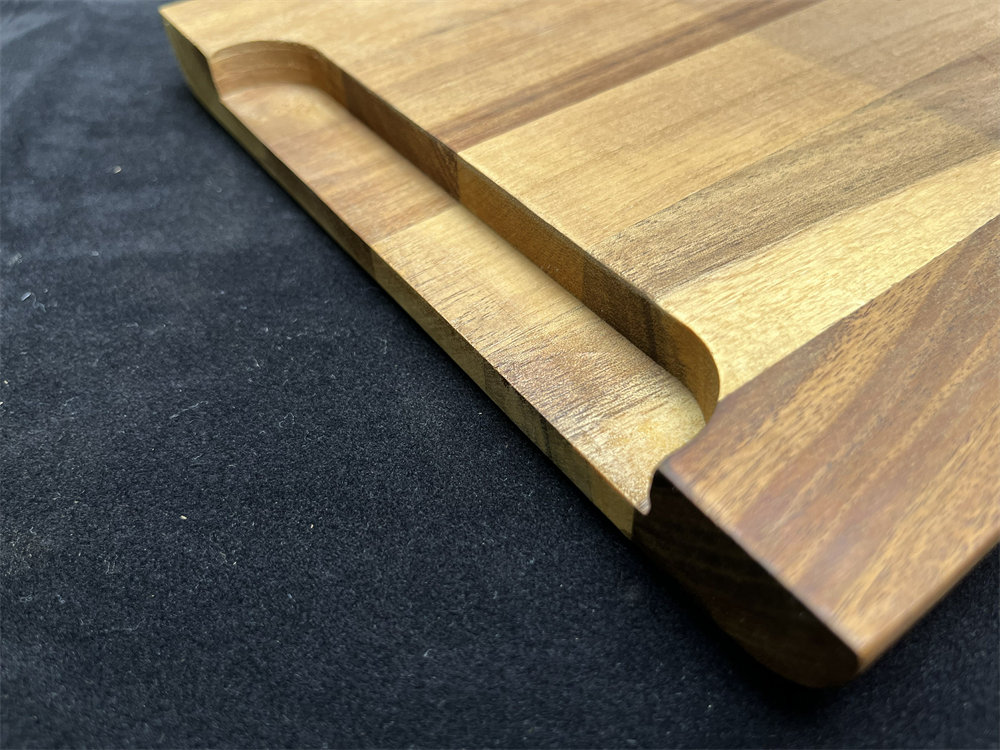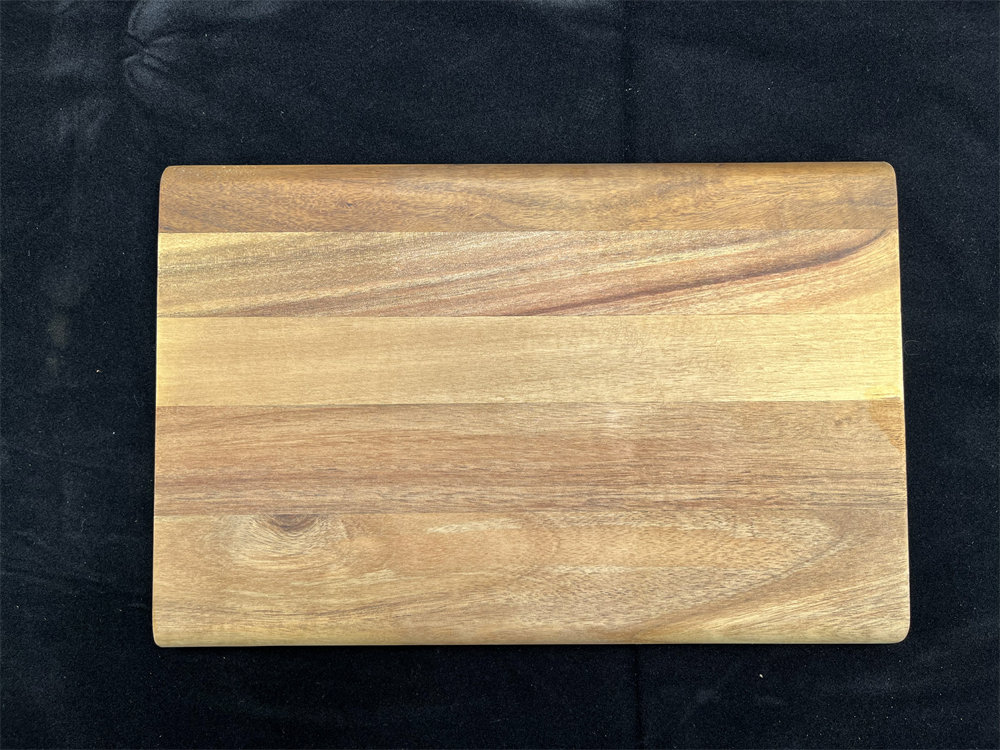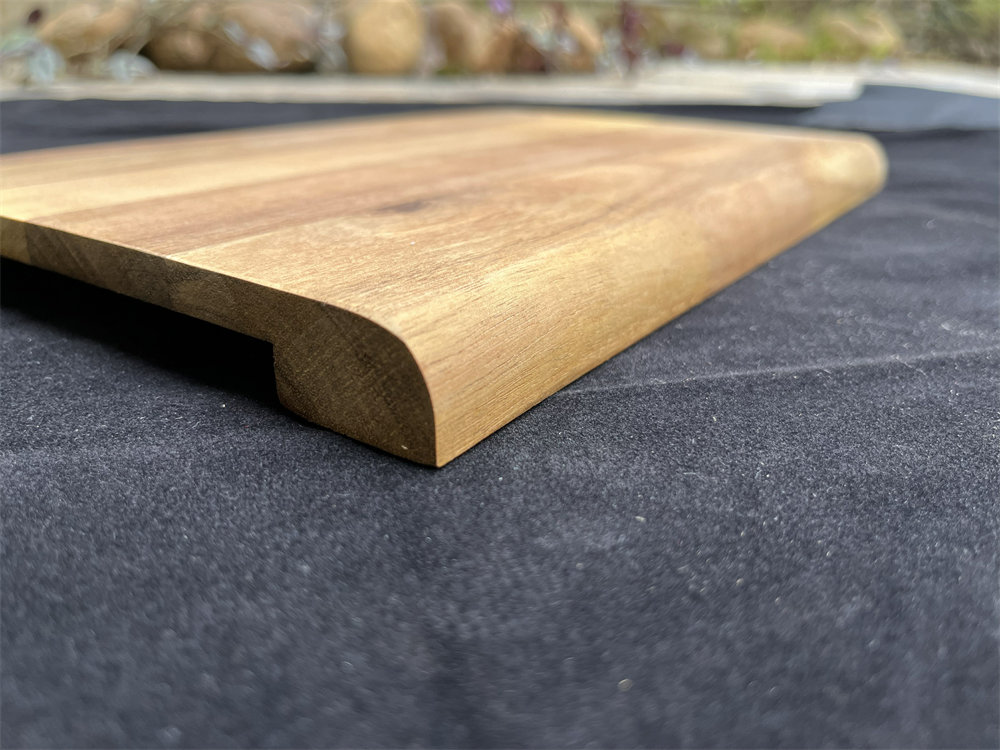Hardwood Cutting Board
- Product Information
Hardwood cutting board is made from sustainably sourced Acacia wood. The size of XYL-WCB003 Acacia wood cutting board is 40x30x2cm. It's the large board of the series. Embrace the beauty of nature in your kitchen with this eco-friendly and responsibly crafted essential item. Users can cut the friut, onion, tomato or other vegetable on the large board.
XinYiLin Technics Factory has been an export-oriented manufacturing enterprise dedicating in the field of wooden product since 2007. Factory is located in Jiangmen of Guangdong, a manufacturing base in China. XinYiLin has more than 15 years manufacture experience for producing wooden kitchenwares such as wooden cutting boards, wooden pizza boards, wooden utensils, wooden pepper mills, wooden rolling pins, wooden coffee sets and so on.
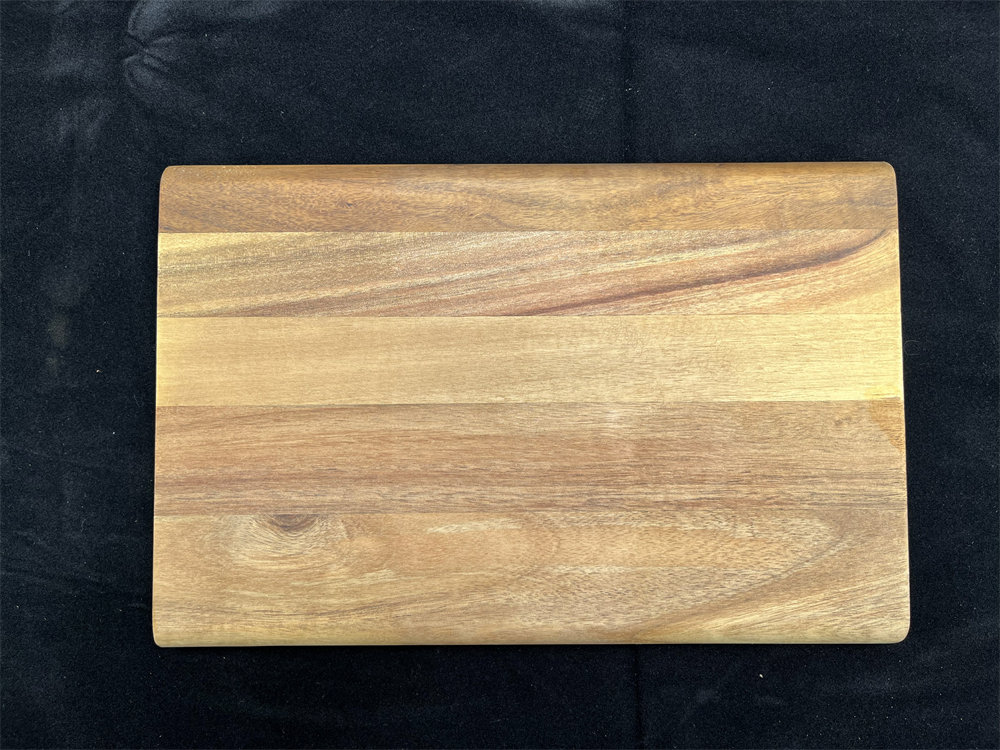
hardwood cutting board Specifications:
| Model Number: | XYL-WCB003 |
| Product name: | Acacia wood cutting board |
| Material: | Acacia wood |
| Shape: | Rectangle |
| Size: | 40x30x2cm |
| Surface finish: | Lacquer or edible grade oil |
| Color: | Natural |
| Packing: | Poly bag + inner box + export carton |
| Place of Origin: | Guangdong China |
| MOQ: | 300 SETS |
| Lead time: | 30-35 Days |
| Shipping way: | Sea shipment, air shipment or express |
Characteristics of Hardwood Cutting Board
1. Durability
Hardwood cutting boards are made of high-density wood, which can withstand frequent cutting and chopping, are not easy to crack or deform, and are suitable for long-term use.
2. Good antibacterial properties
The surface of hardwood cutting boards is smooth and easy to clean, and the natural ingredients in the wood have a certain antibacterial effect, reducing the growth of bacteria.
3. Protect knives
The texture of hardwood cutting boards is soft, which can protect the edge of the knife and extend the service life of the knife.
4. Environmental protection and health
Hardwood cutting boards are made of natural wood and do not contain chemical additives, which is safer and more environmentally friendly to use.
Technical process of Hardwood Cutting Board
1. Wood selection
Hardwood cutting boards are usually made of wood with high density and uniform texture, such as maple, walnut, etc., to ensure the durability and stability of the cutting board.
2. Cutting and splicing
After the wood is cut, the craftsman will splice it according to the grain and color to ensure that the appearance of the cutting board is beautiful and the structure is stable.
3. Grinding and polishing
The surface of the cutting board will be polished and polished many times to make it smooth and flat to avoid scratching knives or ingredients during use.
4. Anti-crack treatment
In order to prevent the cutting board from cracking during use, the wood is usually treated with special treatments, such as soaking, drying or applying waterproof oil.
5. Edge treatment
The edges of the cutting board are usually rounded, which is not only beautiful but also avoids scratching the hands during use.
Application scenarios of Hardwood Cutting Board
1. Home kitchen
In the home kitchen, hardwood cutting boards are a good helper for daily cooking. Whether it is cutting vegetables, chopping meat or cutting bread, hardwood cutting boards can easily cope with it. Its natural beauty can also add a touch of warmth to the kitchen.
2. Professional restaurants
In restaurant kitchens, hardwood cutting boards are popular for their durability and antibacterial properties. Chefs can complete various complex operations on the cutting board, such as cutting meat, chopping spices, etc.
3. Baking scene
Hardwood cutting boards are an ideal choice for baking enthusiasts. Its smooth surface is perfect for kneading dough, rolling dough and cutting bread without damaging knives.
4. Outdoor picnics
The portability and durability of hardwood cutting boards make them a great choice for outdoor picnics. You can use it to cut fruits, vegetables or cheese for a healthy and delicious picnic.
5. Table plating
Hardwood cutting boards can be used as a stylish plating tool for cheese, fruit, cooked food, etc. Its natural texture and color add a touch of elegance to the table.
6. Bartending
In the bar, hardwood cutting boards can be used to cut fruit and mix cocktails. Its durability and beauty make it a must-have tool for the bar.
How to clean Hardwood Cutting Board
1. Daily cleaning
After use, clean hardwood cutting boards with warm water and neutral detergent, and avoid using strong alkaline or acidic detergents to avoid damaging the wood surface.
2. Remove odors
If there is an odor on the cutting board, wipe the surface with lemon slices or baking soda, and then rinse it with clean water.
3. Avoid soaking
Hardwood cutting boards should not be soaked in water for a long time, otherwise it will easily cause the wood to absorb water and swell, or even crack.
4. Disinfection
The cutting board can be disinfected with white vinegar or diluted bleach, but it must be rinsed with clean water immediately after disinfection.
Maintenance methods for Hardwood Cutting Board
1. Oil regularly
In order to maintain the gloss and durability of hardwood cutting boards, it is recommended to apply food-grade mineral oil or beeswax oil once a month. Make sure the cutting board is dry before oiling, and wipe off the excess after the oil penetrates.
2. Avoid exposure to the sun
Hardwood cutting boards should not be exposed to the sun for a long time to prevent the wood from cracking due to excessive drying.
3. Prevent moisture
After use, the cutting board needs to be wiped dry and stored in a dry and ventilated place to avoid the wood from mold in a humid environment.
4. Turn over regularly
In order to extend the service life of the cutting board, it is recommended to turn it over regularly to ensure that both sides are evenly worn.
5. Repair scratches If there are deeper scratches on the cutting board, you can lightly sand it with fine sandpaper and then re-oil it.


